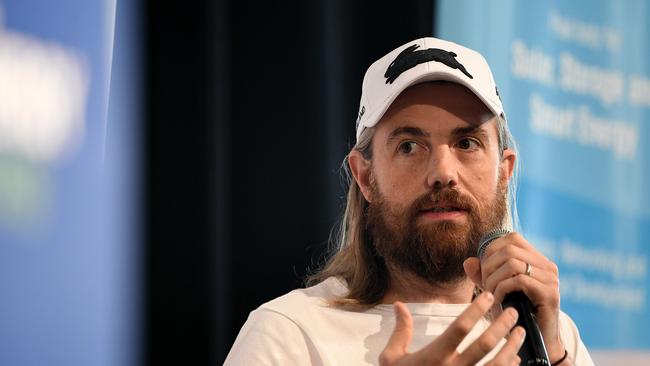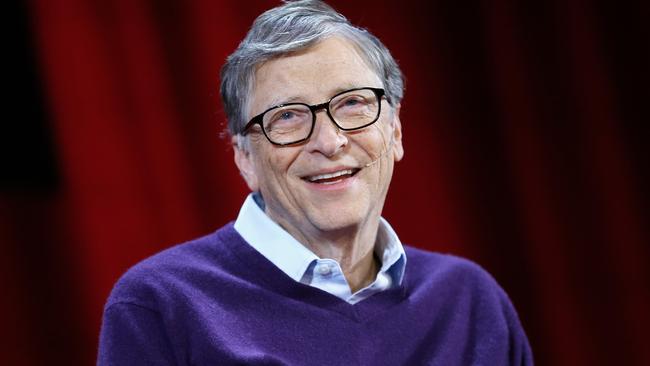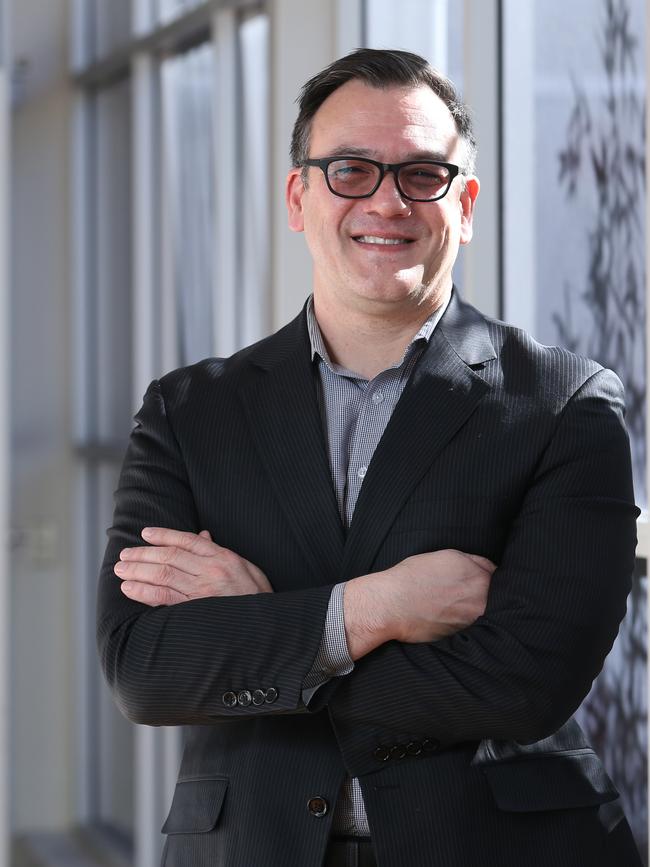Mike Cannon-Brookes hails power of divesting from fossil fuels and changing stance on emissions
Corporate behaviour is changing, with pressure on company boards and executives.

Billionaire Mike Cannon-Brookes has hailed the power of divesting from fossil fuels and rejected an argument made by Microsoft co-founder Bill Gates that climate activists were wasting their time lobbying investors over the issue.
The Atlassian co-founder - an increasingly influential figure in renewable energy - said he didn’t agree with Mr Gates’ argument the divestment movement had done nothing to reduce emissions, given resources companies could simply fund their investments elsewhere.
Mr Cannon-Brookes said many large Australian superannuation funds were now putting pressure on company boards and executives to change their stance on emissions which was changing corporate behaviour.
READ MORE: Philanthropy the heart of Atlassian | $20bn to bring Aussie solar power to Singapore | Atlassian boss Mike Cannon-Brookes urged to follow Bill Gates on nuclear power
“Big retirement funds with large pools of capital are now saying it is too risky for me to be invested in companies that aren’t moving fast enough at addressing their carbon, hence I’m going to withdraw my fund, sell my share and buy something else,” Mr Cannon-Brookes told the National Smart Energy Summit in Sydney on Tuesday.

“Putting pressure on boards to make the transition is a huge source of change when you’re hitting the share price of companies and boards and directors are starting to make changes.”
The Microsoft billionaire said in September that a better way to make changes was to invest in disruptive technologies that slow carbon emissions.
Mr Cannon-Brookes conceded divestment was not an exact science but said it was contributing to important structural changes over the way climate change is considered in the investment industry.
“You can argue economically until the cows come home different studies that show it does and does not make a difference. Fundamentally, if your biggest shareholders are saying your business needs to make changes then that point of view, that it makes no impact, I can’t understand. Bill [Gates] and I have disagreed on a couple of things in the past.”
The Climate Action 100+ initiative - which controls $US32 trillion ($47 trillion) globally and is backed by major Australian investors and superannuation funds - has also been targeting some of Australia’s largest polluters to cut their emissions, but has not called for outright divestment.
Climate Action members in Australia include AustralianSuper, AMP Capital, Cbus, IFM Investors, QSuper and BT Financial Group.
Cbus told the conference that with its members’ average age at 38 meaning an investment time horizon of three decades, funds needs to think about long-term risks and sustainability.

“This should go without saying, but every serious investor should be mindful that human induced climate change exists both as a scientific fact and is a material and physical risk to the assets we invest in,” Cbus chief investment officer Kristian Fok said.
“Our regulators, ASIC and APRA have been clear on this. The RBA has been crystal clear on this. Super funds have fiduciary duty to achieve the best returns for members, and as part of fulfilling this duty, we must also consider the climate related risks and opportunities for our investment portfolios.”
Mr Cannon-Brookes is increasingly using his private investment company, Grok Ventures, to invest in energy projects including the ambitious $20bn solar project supplying electricity from the Northern Territory to Singapore by a subsea cable.
A funding deal by the entrepreneur and iron ore baron Andrew Forrest will pave the way for development of the power project, which aims to send 10 gigawatts of power from the world’s largest solar farm near Tennant Creek to Darwin and then Singapore via a 4500km high-voltage direct current cable.


To join the conversation, please log in. Don't have an account? Register
Join the conversation, you are commenting as Logout